Visionary Scientists
We are excited to announce that the third edition of the Neumann Series will take place in the fall of 2024. The conference, titled Visionaries of the Future: Celebrating Mathematics, Science, and the Art of Strategic Play, will be held on October 11 at Liberty Science Center. This event celebrates the profound contributions of visionary scientists whose groundbreaking ideas have shaped the fields of mathematics, artificial intelligence, game theory, and beyond. Each edition of the Neumann Series focuses on a unique theme, and for this year’s event, we aim to accomplish several interconnected goals.
John von Neumann’s Legacy with the Art of Play
This year’s conference highlights von Neumann’s lasting influence in mathematics and game theory, emphasizing the connection between science and play. We believe that strategic games are powerful tools for engaging the younger generation in scientific discovery.
The Role of Play in Science Education
Games and science are inherently linked. Creative games, many of which are rooted in mathematics, play a crucial role in educating children and introducing them to the wonders of science—an area in which von Neumann was undoubtedly a pioneer.
Commemorating 30 Years of John Charles Harsanyi’s Nobel Prize
This year marks the 30th anniversary of Hungarian-born economist John Charles Harsanyi’s Nobel Prize, awarded alongside John F. Nash and Reinhard Selten for their groundbreaking work in game theory. John von Neumann, together with Oscar Morgenstern, founded modern game theory, a field popularized in culture by the film A Beautiful Mind about Nash. Interestingly, Harsanyi also appears in the film!
Celebrating Hungarian Nobel Laureates
The year 1994 was remarkable for Hungarian American scientists, as George Andrew Olah received the Nobel Prize in Chemistry, the same year Harsanyi won the Nobel for Economics. It’s worth noting that John von Neumann, a key figure in both fields, earned his first degree in chemical engineering before his doctorate in mathematics.
Chess as a Tool for Logical and Mathematical Thinking
Chess, one of the most powerful tools for developing logical thinking and mathematical skills, will be a central focus of this year's event. We are honored to host a panel discussion featuring Judit Polgar, widely regarded as the greatest female chess player in history. Polgar broke countless barriers throughout her career, achieving the title of Grandmaster at the age of 15—at the time, the youngest ever to do so. She has consistently ranked among the world’s top players, defeating 11 world champions, including Garry Kasparov and Magnus Carlsen, and has been a strong advocate for the educational benefits of chess.
Joining her in the discussion will be Paul Hoffman, a renowned author, science writer, and the current president and CEO of Liberty Science Center. Hoffman’s works span a variety of intellectual topics, from mathematics to puzzles and strategy. He is the author of King’s Gambit: A Son, a Father, and the World’s Most Dangerous Game, an exploration of the psychological intensity and emotional complexity behind chess. He is also the author of the award-winning international bestseller The Man Who Loved Only Numbers: The Story of Paul Erdős and the Search for Mathematical Truth. As a leader at Liberty Science Center, Hoffman continues to inspire curiosity and a love for science, education, and strategic thinking. Together, they will explore how chess and strategic play can foster critical thinking and problem-solving in the next generation.
Celebrating the 50th Anniversary of the Rubik’s Cube
This year also marks the 50th anniversary of the Rubik’s Cube, the most iconic puzzle in history. The cube serves as a brilliant case study in combinatorial mathematics and problem-solving.
The Liberty Science Center provides the perfect venue for this celebration, aligning with its mission to inspire future scientists and engineers and to engage learners of all ages in the joy and promise of science and technology. Each year, more than 750,000 students, teachers, and parents visit Liberty Science Center, and thousands more participate in off-site and online programs.
During the event, in addition to the scientific conference, interactive games will be presented outside the conference hall. Visitors will have the chance to explore chess, the Rubik’s Cube, and other innovative games that blend education and entertainment. We believe this occasion will not only celebrate the contributions of visionary scientists but also inspire people of all ages to dive into the fascinating world of science and strategic play. Through this, we hope to contribute to the popularization of STEM education, showcasing both new and time-tested tools for learning and discovery.
Tamas Novak PhD - Science and Innovation Diplomat - Consulate General of Hungary
Monika Krausz - Executive Director - Tulipan Foundation
Program
Meet Our Speakers!
Click to flip for introduction!
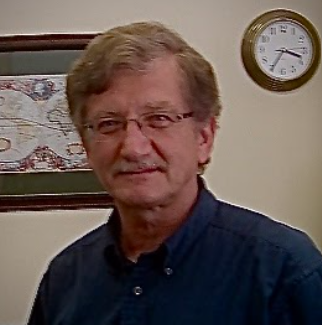
Bergou, Janos
János Bergou is a Hungarian physicist and academic who currently holds a professorship at Hunter College and the Graduate Center of the City University of New York. He has been a Fellow of the Optical Society of America since 2006, and the American Physical Society since 2009 for "outstanding work in the field of quantum optics and quantum information”. He was awarded the Officer’s Cross of the Order of Merit of the Republic of Hungary (2013). He is Honorary Doctor of the University of Pécs (2013) and External Member of the Chilean Academy of Science since 2017. He earned a Master of Science (1970) and a PhD summa cum laude in Theoretical Physics (1975) from the Loránd Eötvös University in Budapest. He received the degree of Doctor of Science from the Hungarian Academy of Sciences in 1994. He is the founding president of the New York Hungarian Scientific Society, which regularly brings together scientists born in Hungary and working in the United States.
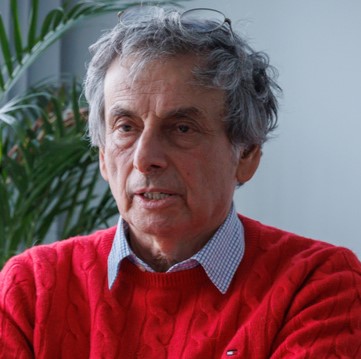
Erdi, Peter
Péter Érdi has served since 2002 as the Henry Luce Professor of Complex Systems Studies at Kalamazoo College in Kalamazoo, Michigan, where he teaches interdisciplinary classes and is cross-appointed in the physics and psychology departments. Péter Érdi grew up in Budapest, now an emeritus research professor at the Wigner Research Centre for Physics. Érdi served as the Editor-in-Chief of the Elsevier journal Cognitive Systems Research and vice-president of the International Neural Network Society. He is a founding director of a study abroad program, the Budapest Semester in Cognitive Science, which takes international students to Budapest for a semester. Péter Érdi has written well-accepted books published by Princeton University Press, MIT Press, and Springer. The book RANKING: The Unwritten Rules of the Social Game We All Play (Oxford University Press, 2020) has been translated into Chinese (with both simple and complex characters), German, Hungarian, Japanese, and Korean.
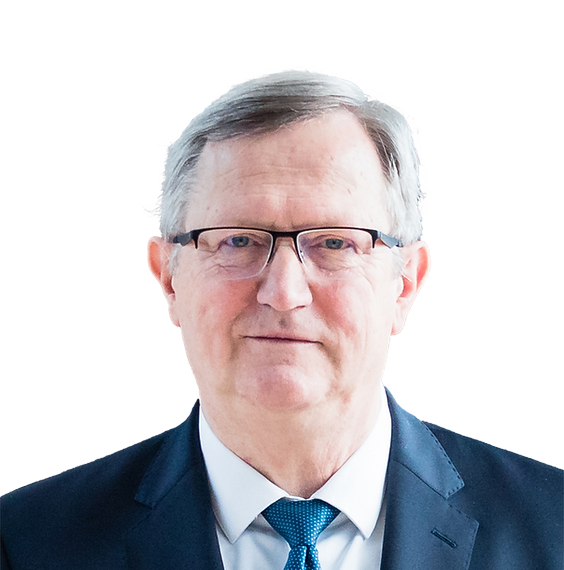
Friedler, Ferenc
Professor Ferenc Friedler graduated in mathematics (1977), received CSc degree (1990) and Doctor of Science degree (1995) in process systems engineering. His main research activity is related to the design and operation of complex engineering systems. Together with late L.T. Fan, founders of the P-graph framework to provide theoretical basis for synthesizing complex engineering systems. Founder of international conferences and academic organizations. As the president of John von Neumann Computer Society (2013 – 2019), initiated the foundation of John von Neumann Professorship at Budapest University of Technology and Economics. Currently, he is the Rector and Scientific Vice-president of Széchenyi István University. Honored with several awards including John von Neumann Prize, 2007; Dennis Gabor Prize, 2008; Széchenyi Prize, 2010; Egervary Memorial Award, 2010; Honorary doctorate, National Technical University Kharkiv, 2012.
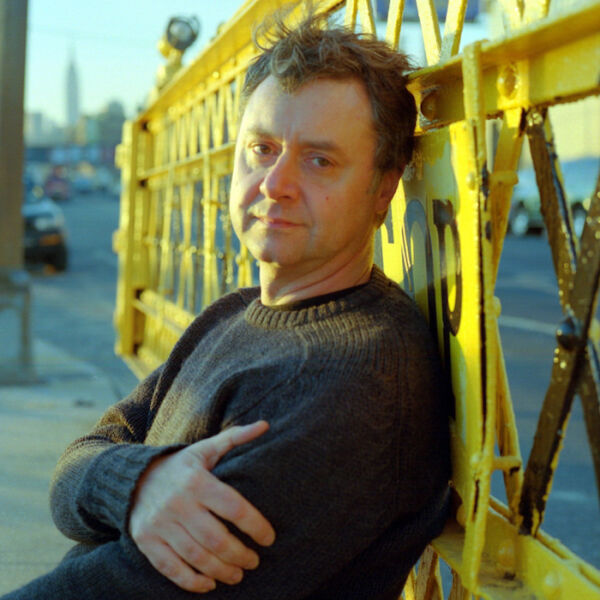
Hoffman, Paul
Paul Hoffman is the President and CEO of Liberty Science Center. As a writer, Hoffman's work explores the relationship between genius, madness, obsession and creativity. He is the author of 11 books, most recently a memoir about the world of championship chess, King’s Gambit: A Son, a Father, and the World’s Most Dangerous Game. Hoffman’s first biography, The Man Who Loved Only Numbers: The Story of Paul Erdös and the Search for Mathematical Truth, was published in 16 languages and won the Rhône-Poulenc prize for best science book of the year. A noted expert on the public understanding of science, Hoffman has advised NASA, the National Science Foundation, the National Academy of Engineering, the American Association for the Advancement of Science, and the Institute of Electrical and Electronics Engineers. Hoffman was elected to the American Academy of Arts and Sciences and graduated summa cum laude and Phi Beta Kappa from Harvard College. He has played chess with Magnus Carlsen, Garry Kasparov, Judit Polgár, and Howard Stern.
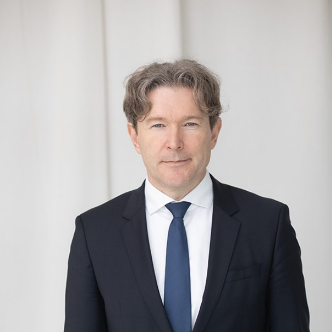
Jakab, Roland
Roland Jakab is the Chief Executive Officer of HUN-REN (Hungarian Research Network). He started his professional career in 2000, joining Ericsson Hungary Ltd., where he was later appointed Head of Strategy for the Central Europe region, covering eight countries. In his professional corporate activities, he has played a leading role in the introduction of several technological innovations (3G, 4G, 5G) and the dissemination of cutting-edge research and development in Hungary. Currently he chairs several professional organisations: President of the Artificial Intelligence Coalition, Chairman of the Hungarian European Business Council (HEBC), President of the Swedish Chamber of Commerce in Hungary, President of BME`s Supporters and Friends Association, Founding Vice President of the Alliance for the Future Engineers, Board member of the 5G Coalition, Member of the Cooperative Doctoral Collegium, Member of the National Advisory Committee of National Laboratories.
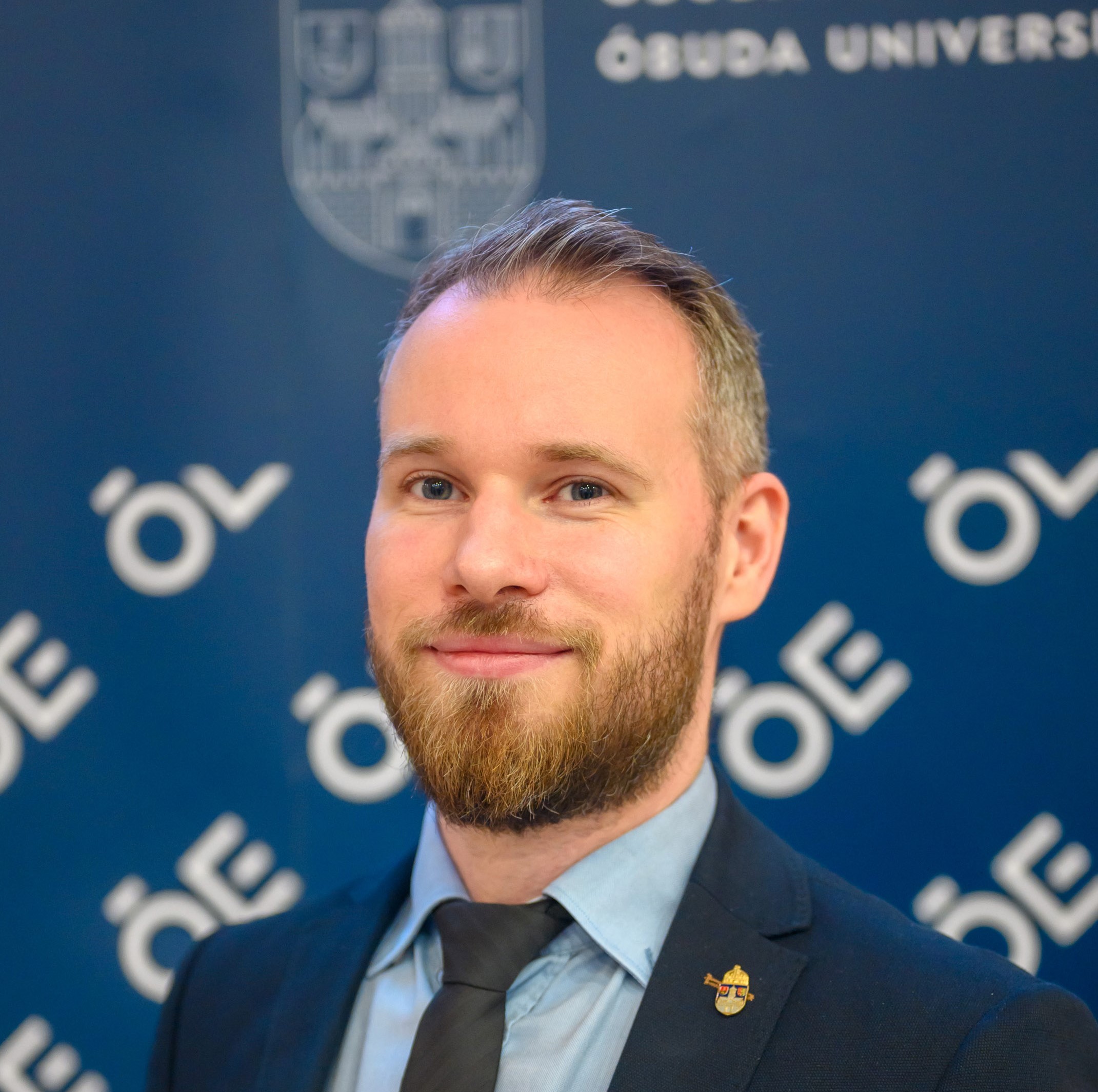
Kertesz, Gabor
Gábor Kertész is an associate professor and vice-dean for research at the John von Neumann Faculty of Informatics, Obuda University, Budapest, Hungary. A senior member of IEEE, Dr. Kertész specializes in deep learning, metric learning, and applied machine intelligence. He is the founding president of the High Performance Computing division within the John von Neumann Computer Society and serves as president of the IEEE Computational Intelligence Hungary Chapter. Earned his MSc in Computer Science from Eötvös Loránd University in 2014, he received his PhD in 2019 in Information Science and Technology from Obuda University; his research focus was on computer vision, parallel processing and deep machine learning. He currently leads the Applied Machine Learning Research Group at Óbuda University.

Klein, Balazs
Balázs Klein has a Masters degree in law and psychology, and a PhD in economics. He currently researches, develops and distributes computerised online aptitude tests and talent identification tools within his own company (Testar Ltd.). Tens of thousands of the novel online adaptive ability tests he developed are administered worldwide each year with adults and children, both in the educational and in the competitive sphere. In addition to his scientific work, he also works as a person-centered psychologist in individual and group settings.
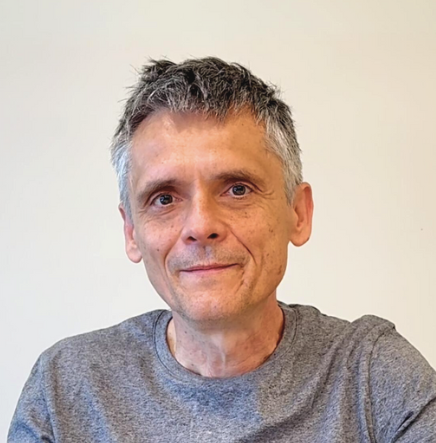
Kokenyesi, Imre
Imre Kökényesi is a multi-award-winning game, puzzle, and toy designer, and a design educator at MOME. His expertise spans cognition research, educational methods, and engineering. He leads a team of psychologists, researchers, and IT-AI experts to create innovative, data-driven learning systems for kindergartens and schools, integrating online and offline methods. Imre’s goal is to enhance cognitive abilities through specially designed puzzles and games. His projects include a game-based cognitive test that improves traditional assessment methods and a personalized math education system for early learners, blending AI with human mentorship.

Lawrence, Cindy
Cindy Lawrence is the Executive Director and CEO of the National Museum of Mathematics (MoMath). Under her stewardship, MoMath has attracted more than one million onsite visitors and has engaged audiences in 125 countries around the world. The innovative and engaging exhibits and programs developed by Ms. Lawrence and her team have resulted in numerous awards for MoMath, including the Communications Award for Public Outreach from the Joint Policy Board for Mathematics and the American Alliance of Museums Media and Technology Professional Network MUSE Award. In her day-to-day role, Ms. Lawrence focuses on the creative design process for exhibits and programs,as well as overseeing all aspects of operations. She serves as a consultant for math museums in formation around the world; she has delivered talks to a variety of audiences including families, teachers and students, museum professionals; women’s groups, and other math and science-oriented organizations; and she has authored numerous articles about the role of mathematics in building community.
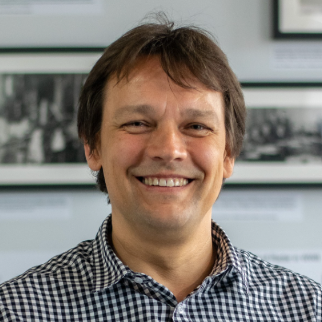
Marka, Szabolcs
Marka Szabolcs is the co-discoverer of cosmic gravitational waves; his extensive research ranges from astrophysics to biophysics. After graduating from Kossuth Lajos University in Hungary, he earned his doctorate at Vanderbilt University in the United States. He conducted research at Cornell University and the California Institute of Technology, and in 2004 he became a lecturer at Columbia University. His work is often covered by the international media, from the New York Times to Die Zeit to the Economist. He is the recipient of the Blavatnik Prize and co-winner of several prizes, including the Breakthrough Prize in Fundamental Physics and the Gruber Cosmology Prize. He strongly believes that in addition to the search for fundamental discoveries, scientists should also invest in improving human life by using their experience and creativity. He is convinced that science can make us live happier, healthier, and longer lives; moreover, engagement in art+explorations can make it worth living!
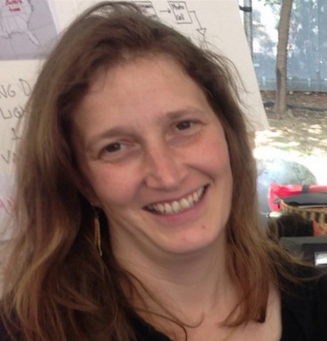
Marka, Zsuzsa
Professor Zsuzsa Márka is a scientist at Columbia Astrophysics Laboratory. She works on the Laser Interferometer Gravitational-wave Observatory (LIGO) project that in 2016 announced the first direct detection of gravitational-waves. Márka led the project that built the LIGO and KAGRA timing distribution systems, key subsystems for instrument control and gravitational wave data acquisition, at Columbia University. She works with members of the Columbia Experimental Gravity group on various aspects of gravitational-wave multimessenger astrophysics with a special focus on joint high-energy neutrino and gravitational wave searches. She is also involved in the development of new technologies through the Columbia BioOptics Group with a focus on combating disease transmitting vectors via optical and acoustic technologies and a murine model of neurodegenerative diseases. As the mother of four children, Márka believes educating young minds for the beauty and value of scientific endeavors is very important for progress.
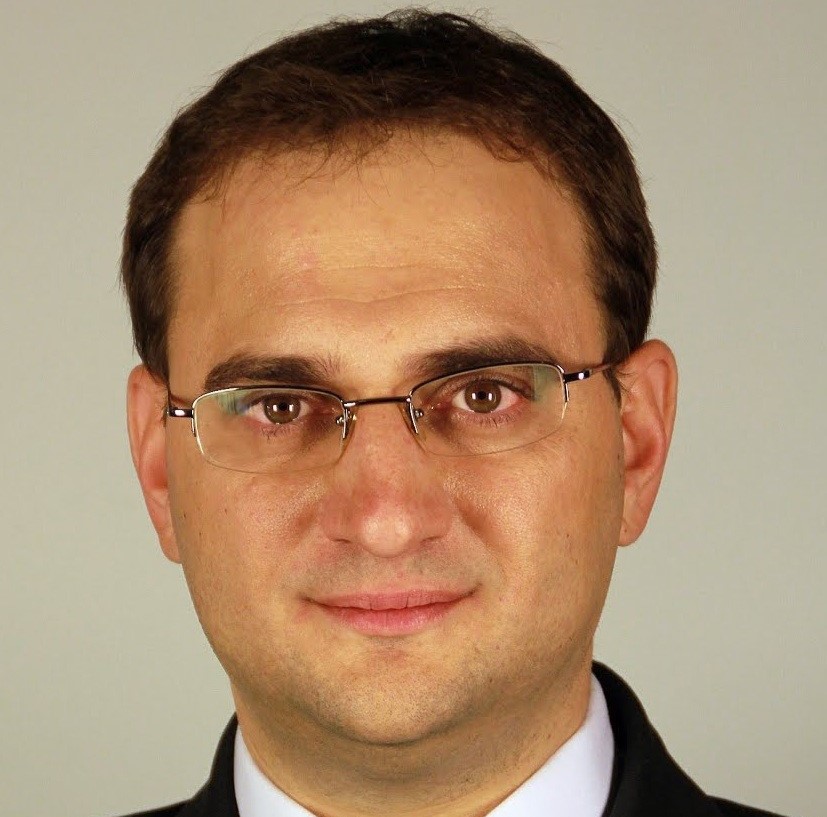
Nemeskeri, Zsolt
Zsolt Nemeskeri is a prominent academic leader and researcher with a deep expertise in cultural and social sciences. He currently holds the position of full professor and Director at the Institute of Cultural and Social Sciences, Faculty of Cultural Sciences, Teacher Training, and Regional Development at the University of Pécs, Hungary. In addition, he is also a full professor at Gál Ferenc University, Hungary. Dr. Nemeskéri has made substantial contributions to the academic community through his prolific publication record, which includes over 350 scientific papers. His work has garnered significant recognition, evidenced by over 500 independent citations and several prestigious awards, including the R. Wayne Pace HRD Book of the Year Award and the Hungarian Innovation Award (for the Dienes MathLab innovation). His intellectual contributions are complemented by his active involvement in academic governance, including memberships in several editorial boards and scientific committees, such as the Hungarian Academy of Sciences.

Nagy-Szakal, Dorottya
Dr. Nagy-Szakal currently holds a position as the Chief Medical Officer for Biotia, where she is responsible for the clinical molecular diagnostics lab that uses advanced genomic techniques and AI-powered reporting for clinical interpretation and pandemic response. Dr. Nagy-Szakal earned her MD and PhD in clinical medicine from Semmelweis University of Medicine in Hungary. Holding a research assistant professorship at SUNY Downstate Health Sciences University and previous postdoctoral fellowships at Baylor College of Medicine/Texas Children's Hospital and Columbia University, she has 15+ years of experience in translational medicine, pediatrics, gastroenterology and microbiology. She led cutting-edge clinical trials on fecal microbiota transplantation and developed a multi-center research program to understand the role of the gut-brain axis in the integrative neuroscience field with the ultimate goal of improving diagnostics and developing novel therapies. She is the President of the New York Hungarian Scientific Society.
Nemeth, Robert
Róbert Németh is a third-year PhD student in physics at Eötvös Loránd University in Hungary and a Fulbright Visiting Student Researcher at the University of Wisconsin-Madison in the United States. He is working in the field of condensed matter physics and quantum information as the student of József Cserti and Gábor Széchenyi, and, temporarily, as a member of Mark Friesen's research group. His current research focuses on the readout and shuttling of spin quantum bits in semiconductor devices. Róbert received his B.Sc. and M.Sc. degrees at Eötvös Loránd University where his theses and published papers revolved around the Aharonov–Bohm effect and other magnetic phenomena in two-dimensional nanostructures. Alongside research, he is also deeply invested in education and talent care: he takes part in the teaching of both undergraduate and graduate physics courses, and he is a member of the organising committee of both the Dürer Competition for high school students and the Rudolf Ortvay International Competition in Physics for university students.
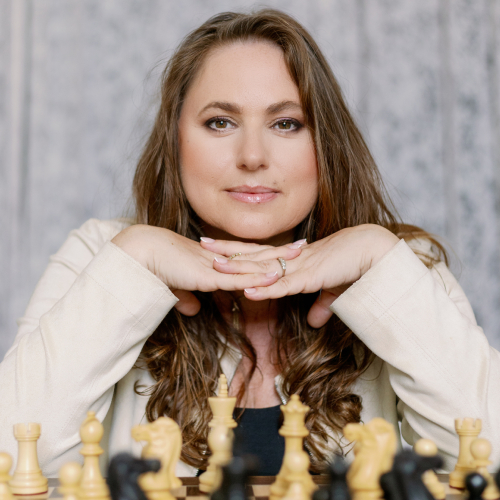
Polgar, Judit
Judit Polgar is the best female chess player in the history of the game. In 1989, at the age of just 12, she topped the adult women’s world rankings, a position she held for 26 years. At the age of 14, she was a two-time Olympic team champion in women's chess (1988, 1990) and later won two silver medals as a member of the Hungarian men’s team (2002, 2014). In 2005, she fought for the men’s world title in San Luis. She has defeated eleven world champions in classical, rapid or blitz games. Since her retirement in 2014, she has been involved in the international promotion of chess through the World Chess Festival, which is organized by the foundation that bears her name. She is the author of books, has developed the Judit Polgár Method (ChessPlayground, ChessPalace, ChessPE program) involving experts and teachers to teach chess to pre-school and school-age children, and frequently holds seminars and TED Talks. Polgár is an ambassador for UN WOMEN’s „Planet 50-50 Champion" gender equality program,” which promotes the proportional participation of women in society and the elimination of gender stereotypes. She is also an expert commentator for major international competitions.
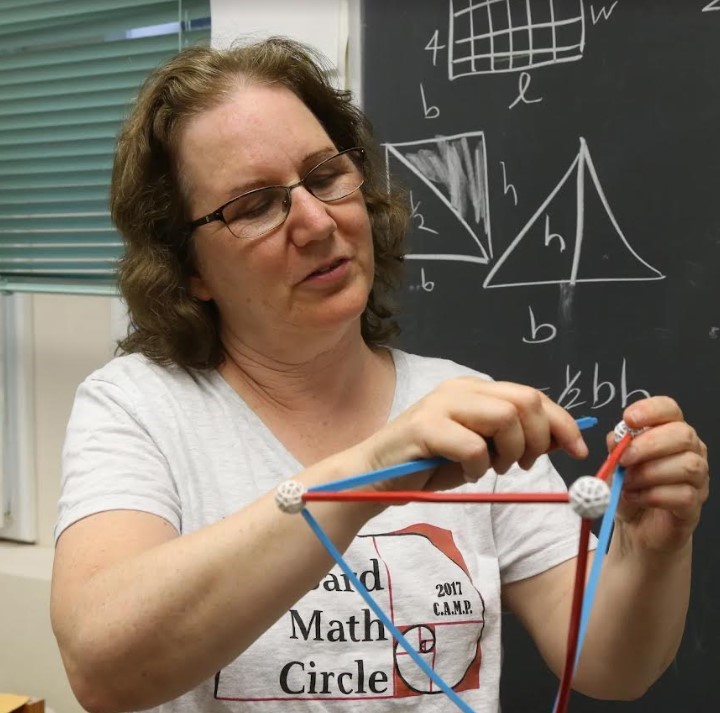
Rose, Lauren
Lauren Rose is a mathematics professor at Bard College. Her research areas include algebraic combinatorics, finite geometry, and recreational math. She developed the math major in the Bard Prison Initiative and oversees the math program. She is a Fellow of the Association for Women in Mathematics, and holds leadership roles in both the Math Circle and Undergraduate Research communities. She is the founder of MAGPIES: Math & Girls + Inspiration = Success, co-organizer of the JRMF Community Math Circle, past chair of the MAA SIGMAA on Math Circles, chair-elect of the UR SIGMAA, and was selected as a 2022 Fellow of the AWM. Her main goal in life is to make deep mathematics fun and accessible to diverse populations.
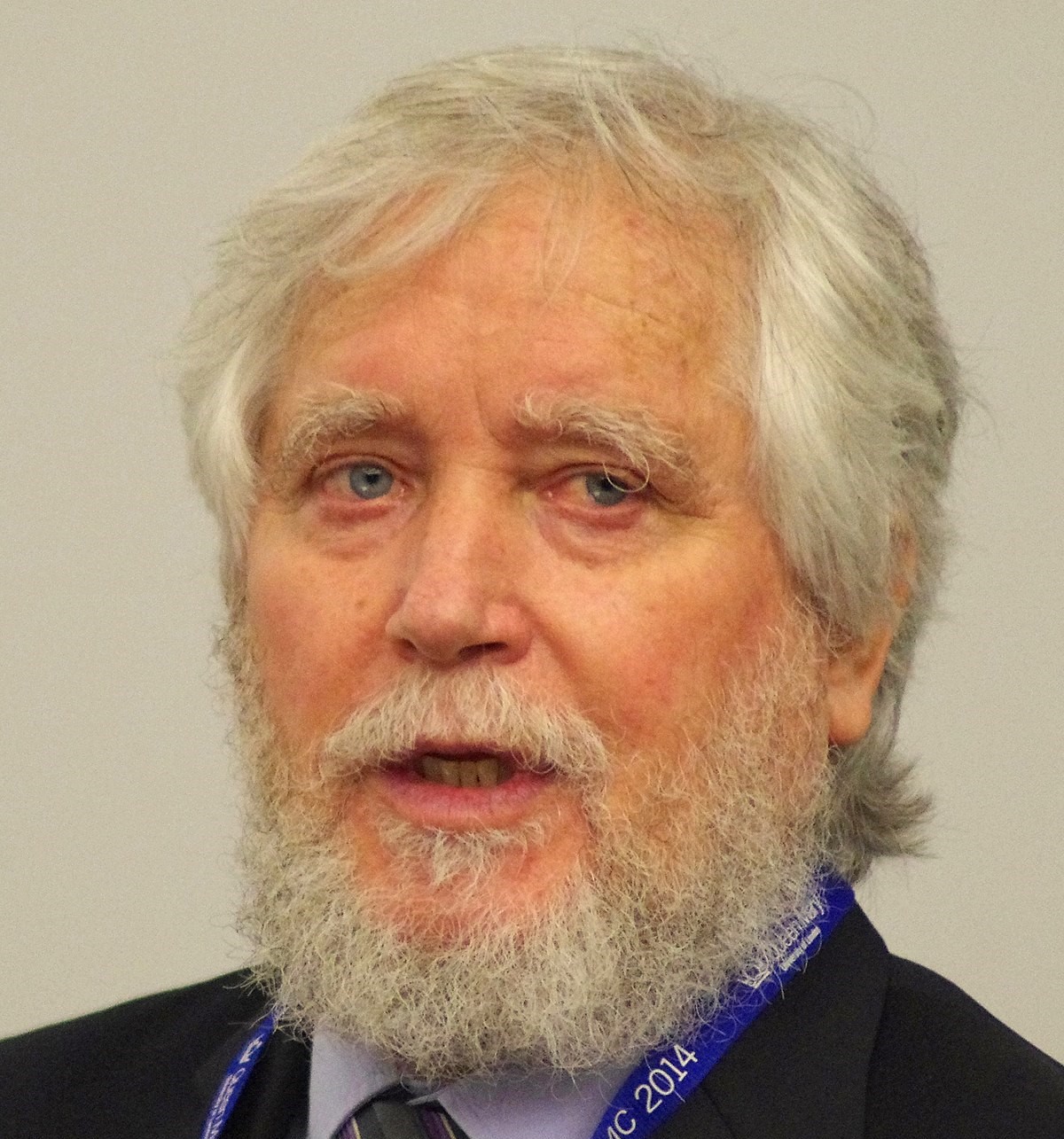
Szemeredi, Endre
Endre Szemerédi is a Hungarian-American mathematician who was awarded the Abel Prize in 2012 “for his fundamental contributions to discrete mathematics and theoretical computer science”. He was a fellow at the Alfréd Rényi Institute of Mathematics of the Hungarian Academy of Sciences in Budapest and from 1986 Professor of Computer Science at Rutgers University. Many of his discoveries bear his name. One of the most important is the Szemerédi theorem, which proves a conjecture made by Erdős and Paul Turán in 1936. It shows that there are arbitrarily long arithmetic progressions in any set of integers with positive density. An important step in this proof, now known as Szemerédi's Regularity Lemma, is a structural classification of large graphs. His work also found many applications in computer science, especially his collaboration with computer scientist Miklós Ajtai and mathematician János Komlós on sorting. In 1983, the trio developed the Ajtai-Komlós-Szemerédi (AKS) sorting network, an algorithm that sorts n objects in a certain order in log n time steps, i.e. in the theoretically shortest possible time.
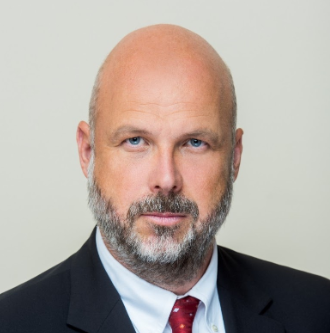
Takats, Elod
Előd Takáts works as Adviser to the Deputy General Manager at the Bank for International Settlements. Prior to his appointment, he worked as Rector to internationalise his alma mater, Corvinus University of Budapest along four key dimensions: (1) quality international publications tripled in three years, (2) English language education share of the incoming class jumped from 20% to 50% in two years, (3) international faculty recruitment reached 25 professors in 2022/23 more than in the previous fifteem years combined and (4) university received international accreditation (AACSB) in Spring 2023 for the first time among Hungarian universities. Beforehand, he had a twelve-year long career at the BIS. Before joining the BIS, his career at the International Monetary Fund (IMF) covered several departments and countries, the last one being China. Furthermore, a visiting professorship at the London School of Economics and Political Science (LSE) allows him to combine academic and policy work. He earned his PhD in financial economics at Princeton University.

Zádori, Iván
Iván Zádori is an economist, human manager, and associate professor. He received his PhD degree in 2009. Between 2000 and 2002, he worked as an economist in the OTP Bank in Pécs. In 2002 he started to work at the University of Pécs. From 2015, he is the vice dean of the Faculty of Cultural Sciences, Education and Regional Development, University of Pécs, and from 2021, he is the head of the Institute of Regional Development. His educational, teaching and research activities cover primarily topics related to regional development, sustainability and education. This research approach allows to examine the responses of economic actors, governmental organizations and institutions, which may generate new patterns within the framework of market coordination that can contribute to the development of more responsible practices and the development of more sustainable economic and social situations, assuming that sustainability patterns can be learned and contributed to the successful adaptation of communities and individuals as well.
Chess and Judit Polgar
Chess has long been celebrated for its intellectual benefits, and its role in education is increasingly recognized, especially in relation to mathematics. It is a game of strategy and foresight, requiring players to think several moves ahead, consider different possibilities and anticipate their opponent's moves. These cognitive demands promote critical thinking and problem-solving skills that are highly transferable to mathematics.
Judit Polgar is one of the greatest chess players in history, she is a deep source of inspiration for young people around the world. Her influence extends beyond the chessboard, influencing various aspects of motivation and achievement. The most important ones are:
- Challenging gender norms: Judit Polgar has broken long-standing gender barriers in chess.
- Outstanding achievements at a young age: She became grandmaster at the age of 15.
- Tireless practicing and learning: Judit’s rise to the top of the chess world was the result of immense dedication and practice.
- Overcoming challenges: Polgar faced numerous obstacles, including skepticism from those who doubted her ability to compete with the best in the world.
- Innovative play style: Polgar’s unique and aggressive play style has been celebrated for its originality and depth.
- Logical and analytical skills: Chess requires strong logical and analytical skills, and Polgar’s success emphasizes the importance of these skills.
- Advocating chess in education: Polgar is a vocal advocate of the educational benefits of chess.
- Role model and mentor: As a public figure and chess ambassador, Judit has inspired countless young people to pursue their passions and excel in their chosen fields.
- Global influence: Her influence extends beyond the chess community. Judit’s story impacts young people in various fields, encouraging them to strive for excellence and overcome barriers in their own lives.
She is a powerful inspiration to young people and shows that with determination, hard work, and a willingness to challenge the status quo, extraordinary achievements are possible. Her life and career can inspire the younger generation to pursue their dreams, take on challenges, and strive for excellence in all endeavors.
Nobel Prize
1994 - An exceptional year for the Hungarian Science
Thirty years ago, in 1994, two Hungarian-born scientists received their Nobel Prizes in the United States. John C. Harsanyi received the Nobel Prize in Economics for his work on game theory and its application to economics. He showed how games with incomplete information can be analyzed and thus provided the theoretical basis for a vibrant field of research – information economics. He is also known for his research on utilitarian ethics and is considered one of the most important representatives of “rule utilitarianism”. George Andrew Olah was awarded the Nobel Prize in Chemistry for his contribution to carbocation chemistry. Chemical reactions in which molecules of atoms collide and form new compounds are among the fundamental processes of nature. Carbocations are electrically charged molecules in which the charge is concentrated on a carbon atom. They play an important role as intermediates in chemical reactions and have a very short lifespan. In the early 1960s, George Olah used very strong acids to generate carbocations in solution with lifetimes long enough to study them With this conference and the side events we would like to honor their achievements and provide information about their work and scientific legacy on this page.
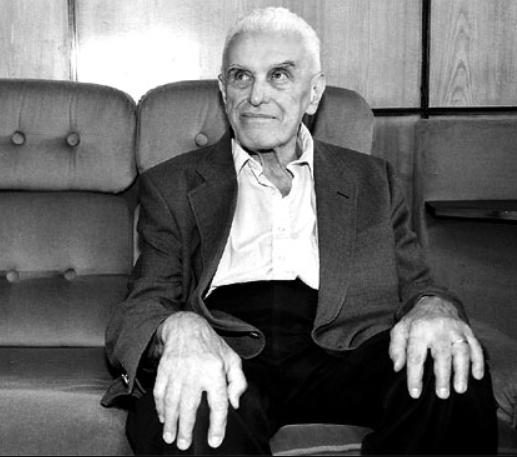

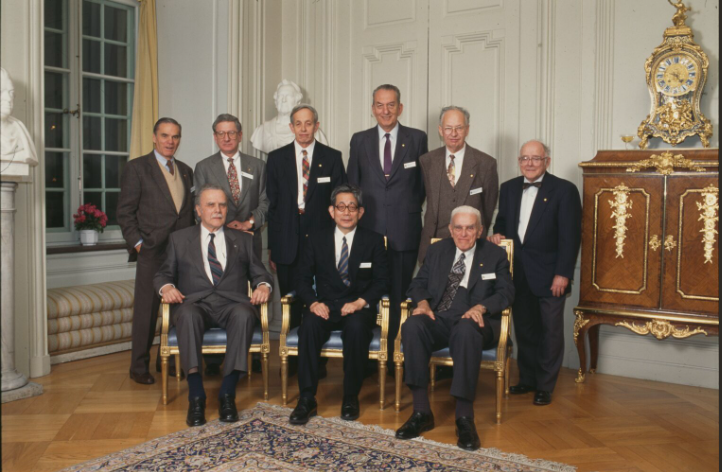
A short biography of John Harsanyi
John Harsanyi - Nobel lecture
A short biography of George Olah
George Olah - Nobel lecture
The story of Rubik's Cube
The Rubik's Cube, invented by Ernő Rubik in 1974 - exactly 50 years ago -, is much more than just a popular puzzle; it has great significance in various fields, from education to cognitive science and beyond. The Rubik's Cube is a complex puzzle that requires strategic thinking and problem solving. To solve it, one must understand and apply algorithms, which promotes cognitive skills such as pattern recognition, spatial reasoning and logical thinking. These skills are transferable to other school and real-world challenges. The structure of the cube and the algorithms used to solve it are deeply rooted in mathematical concepts, including group theory and combinatorics. Memorizing the sequences and algorithms required to solve the cube can improve memory and recall. This memory exercise can be beneficial for students and professionals who need to memorize and apply complex information. The Rubik's Cube became a worldwide phenomenon shortly after its invention, spawning competitions, clubs and a vibrant community of enthusiasts. Many educators use the Rubik's Cube as a teaching tool to make learning more engaging. It can be used to teach math concepts, problem solving strategies and even history by exploring the origin of the cube and its influence on pop culture.
Rubik`s Cube in popular culture
What do James Bond, The Big Bang Theory, Despicable Me, Pursuit of Happines, Spidermen, Family Guy, Snowden, Wall-E, The Simpsons or the Spice Girls, Harry Styles, Dua Lipa, Jennifer Lopez, Marooon 5, Genesis, Taylor Swift and Ed Sheeran have in common? Yes, all of these movies and musicians have used the Rubik`s Cube in one way or another. Whether used as a tool to enhance character empathy, as a background prop or as a symbol of intelligence, the Rubik's Cube is a versatile and iconic element. Its presence in films and music often emphasizes themes of mental agility and problem solving, using its universal recognition value to appeal to audiences and convey deeper messages.
